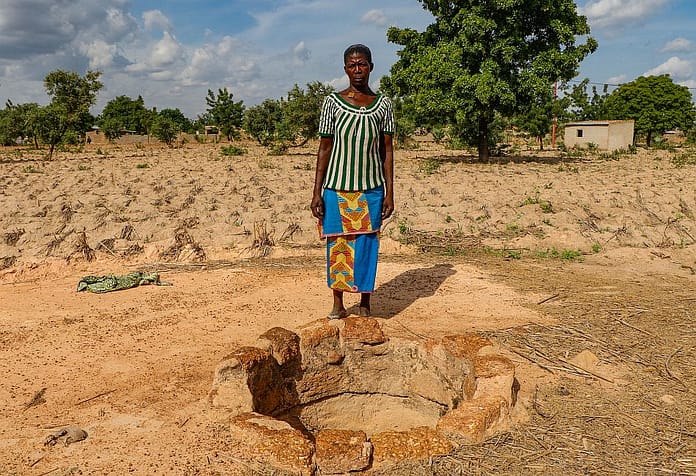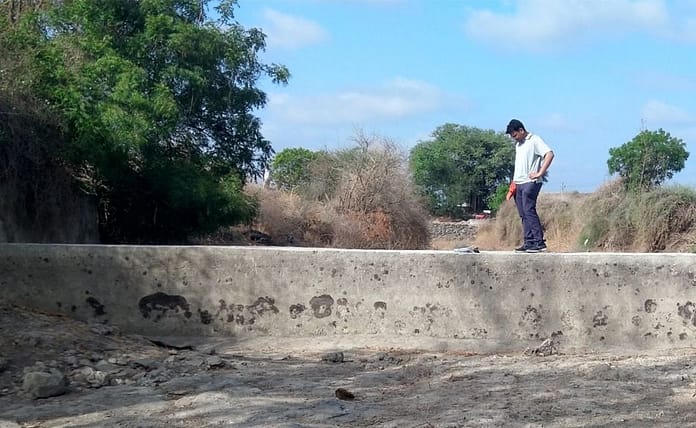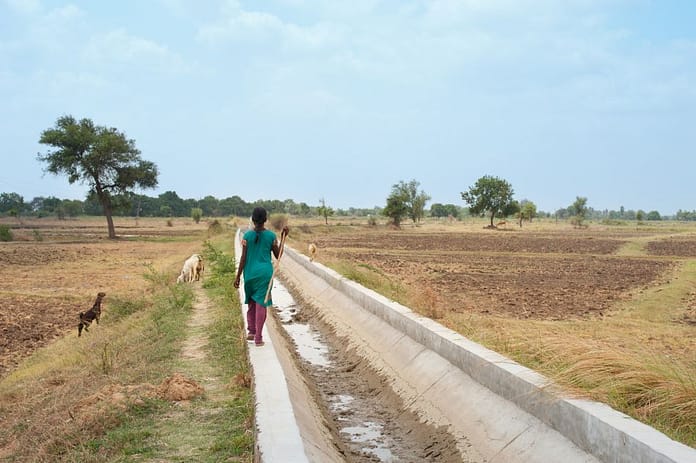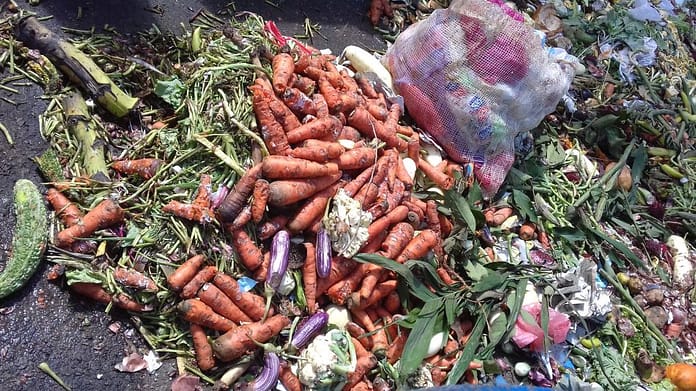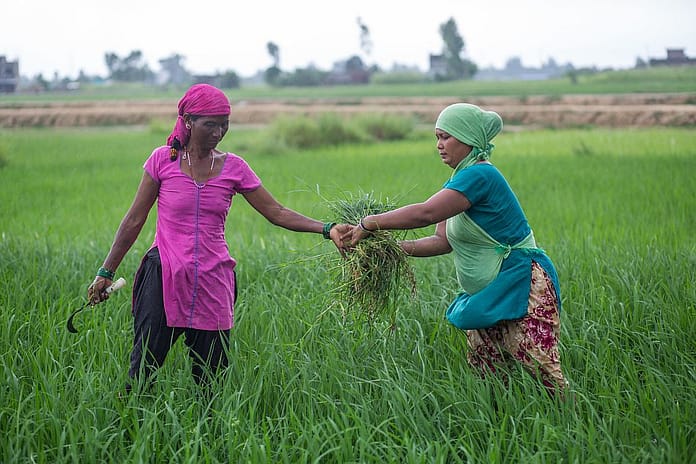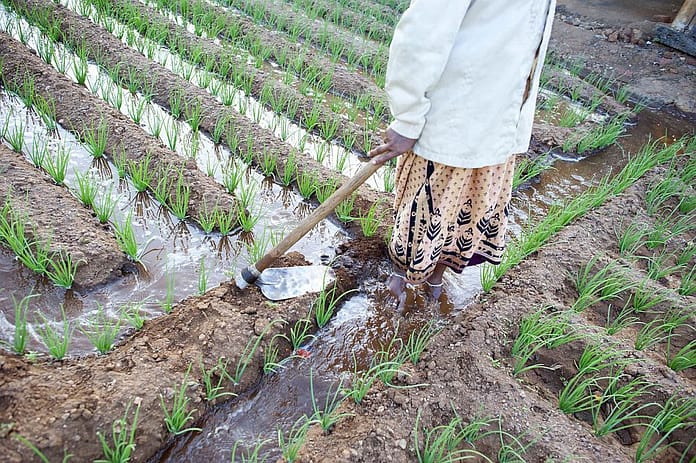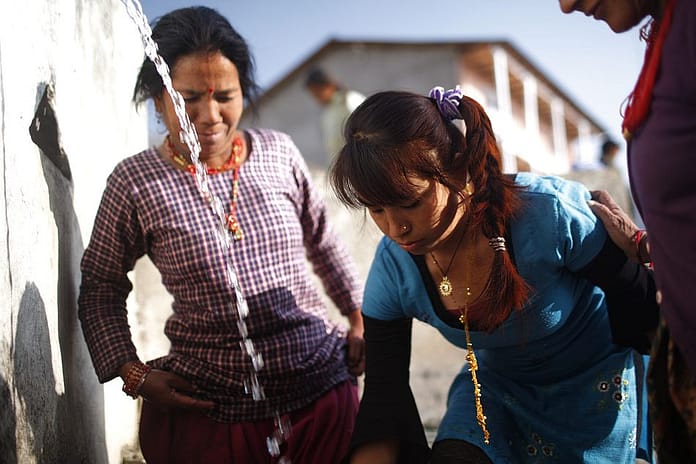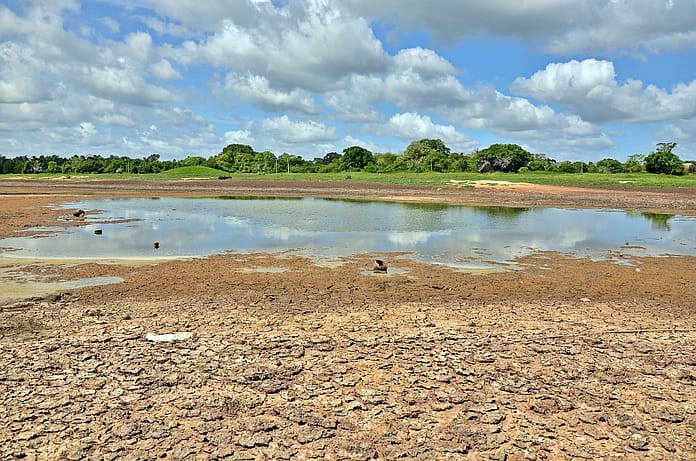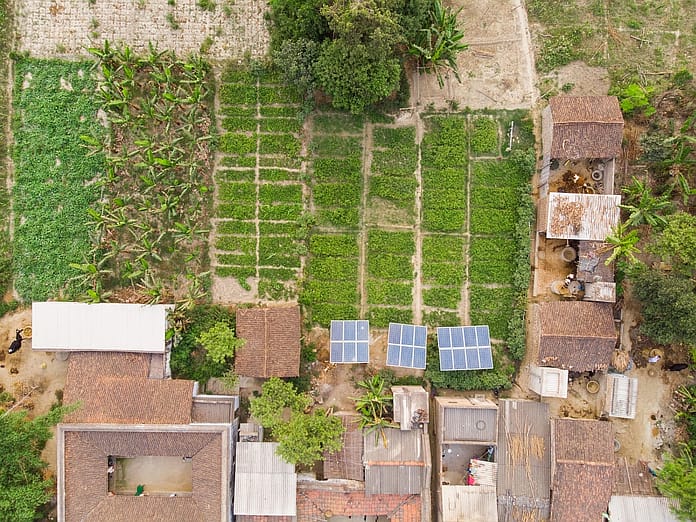On April 6, IWMI and IFPRI — along with several other CGIAR centers including IRRI, The Alliance of Bioversity International and CIAT, ILRI, and ICARDA — collaborated with the Department of Water Resources and Irrigation (DoWRI) of the Government of Nepal to officially launch the global CGIAR initiative “NEXUS Gains: Realizing Multiple Benefits Across Water, Energy, Food, and Ecosystems (WEFE)” with particular focus on the Ganges basin.
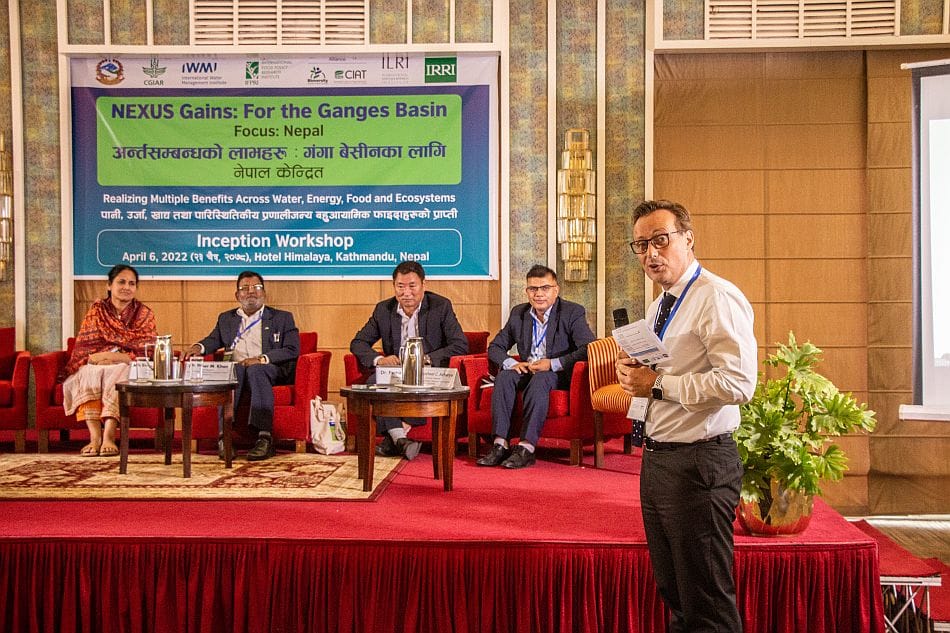
Here are six key takeaways from the event:
A truly nexus approach
The foundation of the NEXUS Gains initiative is the understanding that water, energy, food, and ecosystems (forests and biodiversity) are strongly interconnected.
NEXUS Gains lead, Stefan Uhlenbrook of IWMI, emphasized the importance of cross-sectoral collaboration, saying “It’s about bringing the sectors together on an equal footing and managing water, energy, food and ecosystems in an integrated way.”
A truly nexus approach, however, is not only between WEFE sectors.
There are several scale dependencies and multiple levels of government from federal, provincial, and local bodies to small WEFE user associations, local communities, and disadvantaged people. The number of stakeholders increases complexity, particularly when working on transboundary scales.
Drawing from the past to move towards a naturally “nexused” future
For a nexus transformation, experts and stakeholders believe that drawing lessons from the past and inventing blended solutions is critical for building a sustainable future.
Balram Thapa, Executive Director at LIBIRD explained, “Our ancestors were able to implement sustainable solutions by understanding the environment as a holistic force, and maintain their livelihood.”
Though the situation has changed, Thapa emphasizes the need to “recognize indigenous knowledge, technology and practices — which still exist — as resources to draw from, and blend them with modern science and technology to harness opportunities.”
Nexus is natural, and it is time for our systems and structures to reflect that.
Data and information for systems thinking
Research, data, and information were recognized as integral to the development of tools, approaches, innovation, policy, and technology across sectors, systems, and boundaries.
A lack of evidence or data is one of the reasons why sectoral silos persist among lawmakers, as noted by Bimala Rai Paudyal, honorable member, National Assembly, Federal Parliament of Nepal. “Parliamentarians face the challenge of access to reliable and timely data, and are compelled to rely on government statistics only,” she noted. She emphasized the need to bridge the gap between policymakers and research scientists so that policy is driven by more evidence and data.
Balances and trade-offs
Achieving a balance between development aspirations and environmental conservation is proving to be a monumental challenge for many developing countries.
On the one hand, there is a growing demand for large development projects for socioeconomic development, which often lead to detrimental impacts on environmental systems. On the other hand, the need for protecting ecosystems and natural resources, while recognized, can come at the cost of economic development.
Understanding and managing balances and trade-offs has become a challenge. Saloni Pradhan Singh, honorable member of the National Planning Commission (NPC) Nepal, emphasized, “There is no other alternative than understanding inter-linkages and trade-offs to find ways to balance and create synergies among sectors to secure socioeconomic development in the future.”
Integrating micro and macro
At the macro level, transboundary water needs and dynamics are highly influenced by geopolitics and often are at odds with the reality or capacity of individual nations. At the micro level, people, communities, and local economies suffer when governments across political boundaries fail to come together to moderate WEFE-related disasters or manage transboundary resources effectively.
These situations raise many crucial points that shape NEXUS Gains’ thinking. For example, how can the research framework be created to accommodate micro dimensions, and how can the WEFE nexus work towards creating an environment for regional and supranational cooperation for strengthening regional resiliency?
Santosh Nepal, Researcher at IWMI, highlighted the need for developing a “cooperative environment” between systems and sectors, governments, communities, and individuals who are presently competing for limited resources.
Placing people at the heart of the water, energy, food, and ecosystems nexus
Manohara Khadka, Country Representative, IWMI Nepal, stressed that integrated management of WEFE resources supports, among other things, “gender equality, enhanced leadership and agency of women, disadvantaged and marginalized groups, and the enhanced role of women in Nepal.” To realize the benefits across WEFE, the concerns, needs, and capabilities of these groups must be prioritized moving forward.
Moving forwards, the initiative will engage in interventions and research that will improve water productivity and integrated water storage management, co-develop scalable business and finance models for access to clean energy, co-build guidelines for cooperation and coordination across different sectors and scales for effective governance and build community capacity through training, skill building, knowledge sharing, and mentorship opportunities.

Photo: Onion Films / IWMI


